The National Science and Technology Policy of Israel
The article reviews the evolution of Israel’s science and technology R & D policy. This policy is not based on any written document or master plan dictated in advance, but was formed gradually, over decades, at various times and by different people, in the corridors of government and the Knesset, universities and industry, which together […]
Energy Forum 20: Grid-connected photovoltaic systems for the residential and commercial sectors
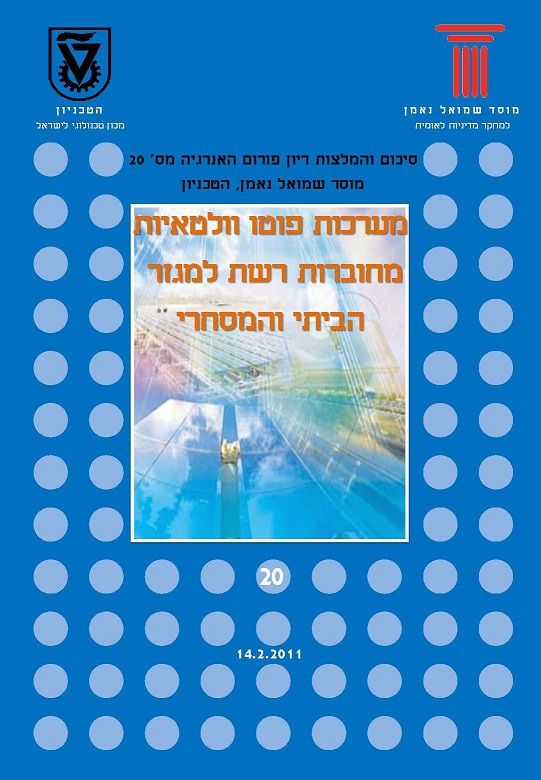
Photovoltaic (PV) systems are currently the most common method for producing solar electricity. Their great advantage lies in their many installation options and their variety of energy outputs, beginning with less than one kilowatt peak (kWp) systems, which can be installed on a single pole or small roof, up to systems of many Megawatts peak […]
PLANNING THE FUTURE: Annual Report 2010 Samuel Neaman Institute
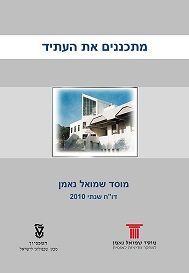
The Annual report for 2010 summarizes the Samuel Neaman Institute’s activities for this year in a wide range of subjects. In particular special attention was given to subjects of science and technology policy, higher education policy, environment, industrial policy, and physical infrastructure in the State of Israel.
Mapping of National Research Infrastructures in Israel
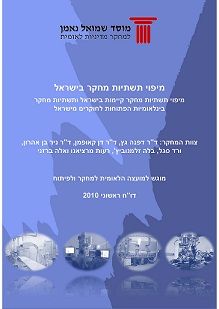
The Neaman Institute won a tender of the Israel National Council for Research and Development – the National Committee for Research Infrastructures (VATAM) – through the Science and Technology Ministry – to conduct a study with respect to the mapping of national research infrastructures. The purpose of the research is the mapping of the existing national […]
Energy Forum 19: Energy Efficiency in lighting systems
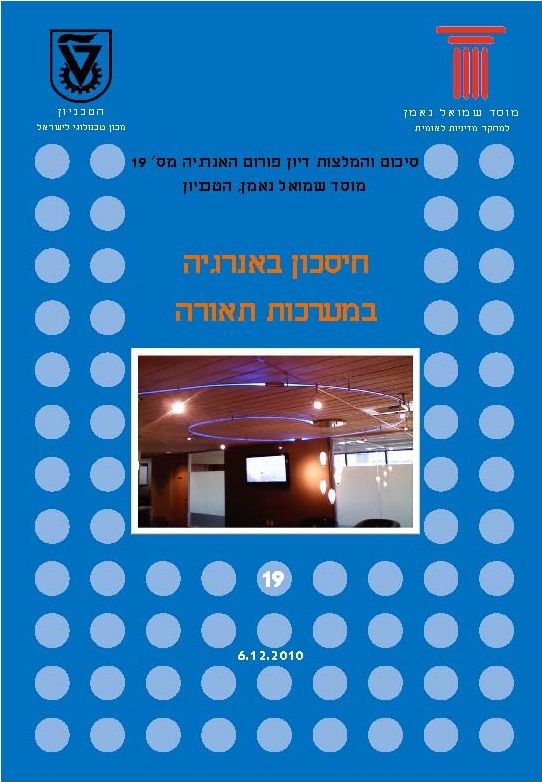
lighting systems are a substantial electricity consumer in the Israeli energy market, as far as 10% of total electricity consumption can be related to lighting. For some consumers such as office buildings, lighting load can reach 40%, taking into account the effect on air conditioning load, as well. The forum participants agree that there is […]
Evaluation of the NOFAR Program
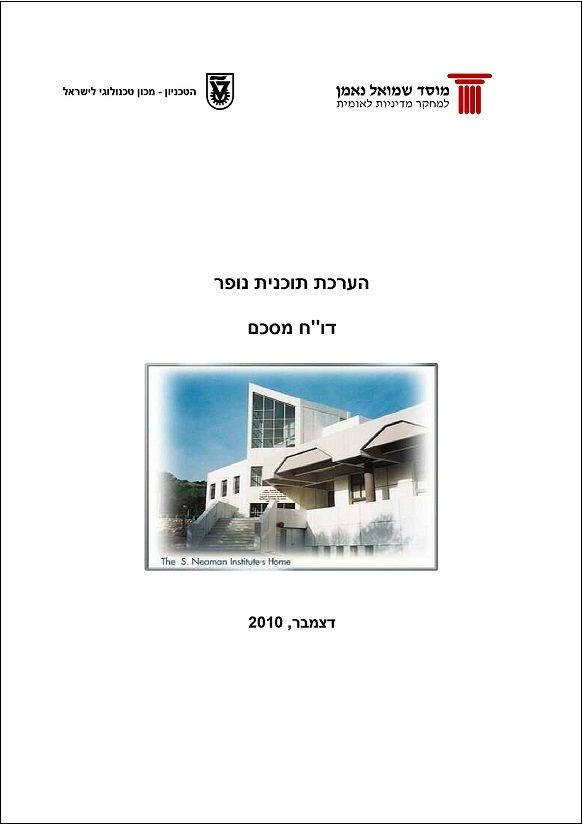
The NOFAR program was conceived as part of the implementation of the recommendations made by the “Monitor Report,” and stresses the need to establish a fund to support the development in universities of inventions in the fields of biotechnology and nanotechnology that have a commercial potential, so as to increase the chances of successful transfer […]
Road Map – A National Program to Promote the Integration of the Ultra-Orthodox Population in the Israeli Economy
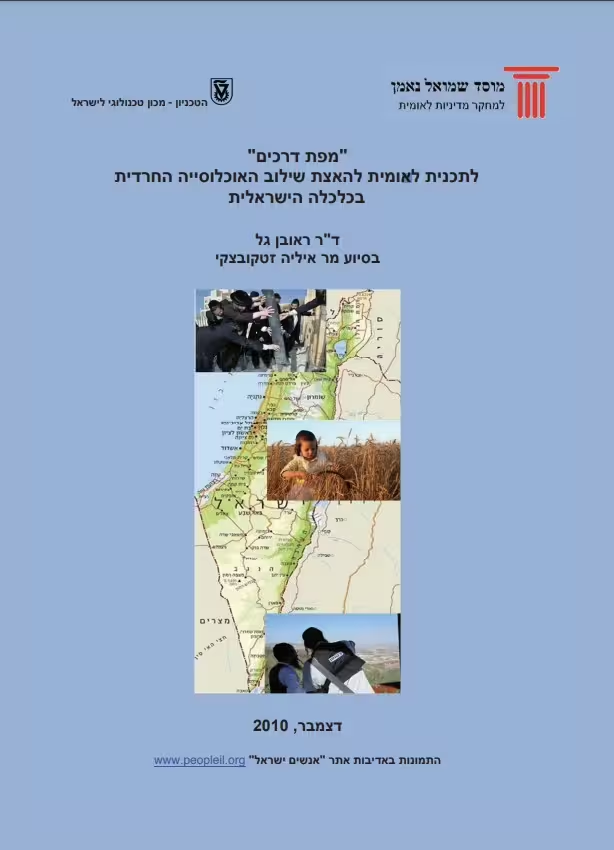
The “Road Map” is an off-shoot of the “Israel 2028 : Vision and Strategy for Economy and Society in a Global World” report. Its goal is to outline solutions for one of the major problems concerning the Israeli economy that is identified in the report: the low rate of participation of the Ultra-Orthodox community in […]
National Energy Technologies Research and Development Survey
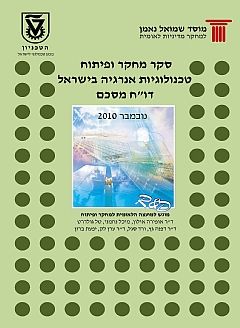
This survey has been recently completed by the energy and environment team at the SNI, for the National Council for Research and Development (NCRD). The survey maps various R&D efforts in Israeli academia and industry, in the following fields: Energy technology R&D – alternative energy sources; energy conservation; energy storage; energy for electricity, heat, transportation; […]
Evaluation of the Rothschild Fellowships Program
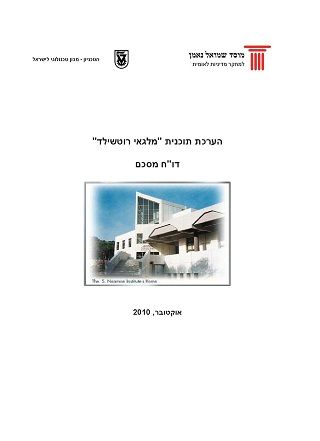
The Rothschild post-doctoral fellowships were established in 1979 with the aim of enabling Israeli PhDs to spend a post-doctoral period of study abroad. The program is considered to be one of the most prestigious fellowships available for Israeli scholars. The main goal of the research was to evaluate the impact of the program on the […]
TOD – Transit Oriented Development Urban Planning around Accessible Rail Transit
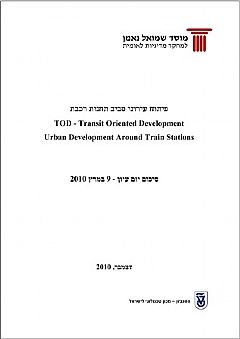
An SNI Conference on “TOD (Transit Oriented Development) – Urban Planning Around Accessible Rail Transit, was held on March 9, 2010. The conference was organized by Prof. Daniel Gat (Technion), Dr. Yodan Rofe (Ben Gurion Univ.) and Prof. (emer.) Shlomo Maital (SNI). This volume summarizes the presentations. The opening article by Avi Bar-Eli is reprinted […]
